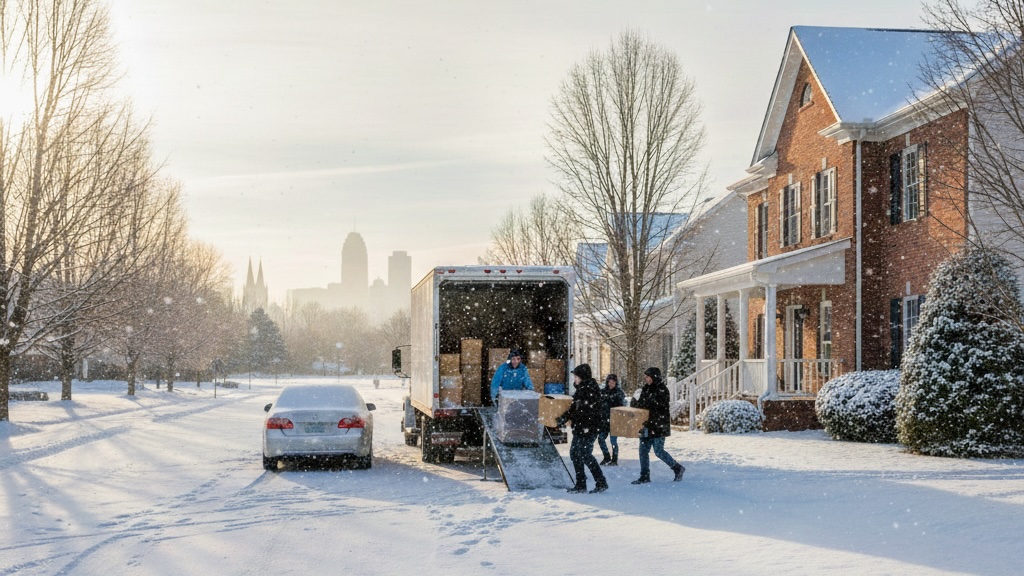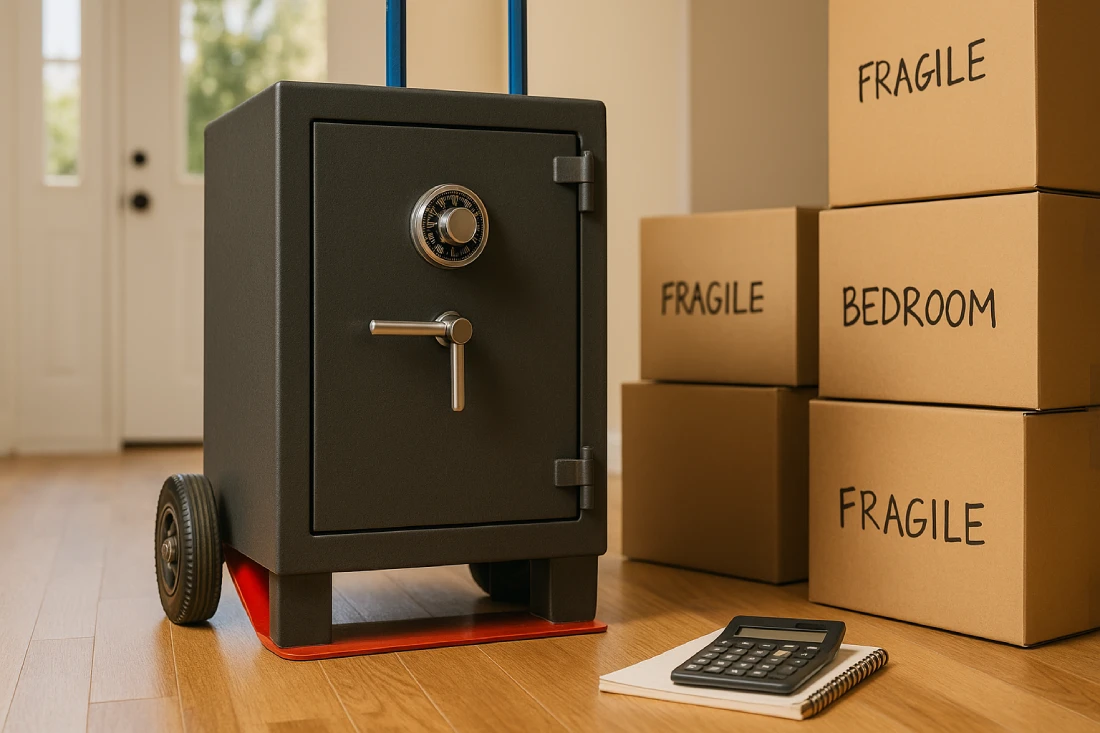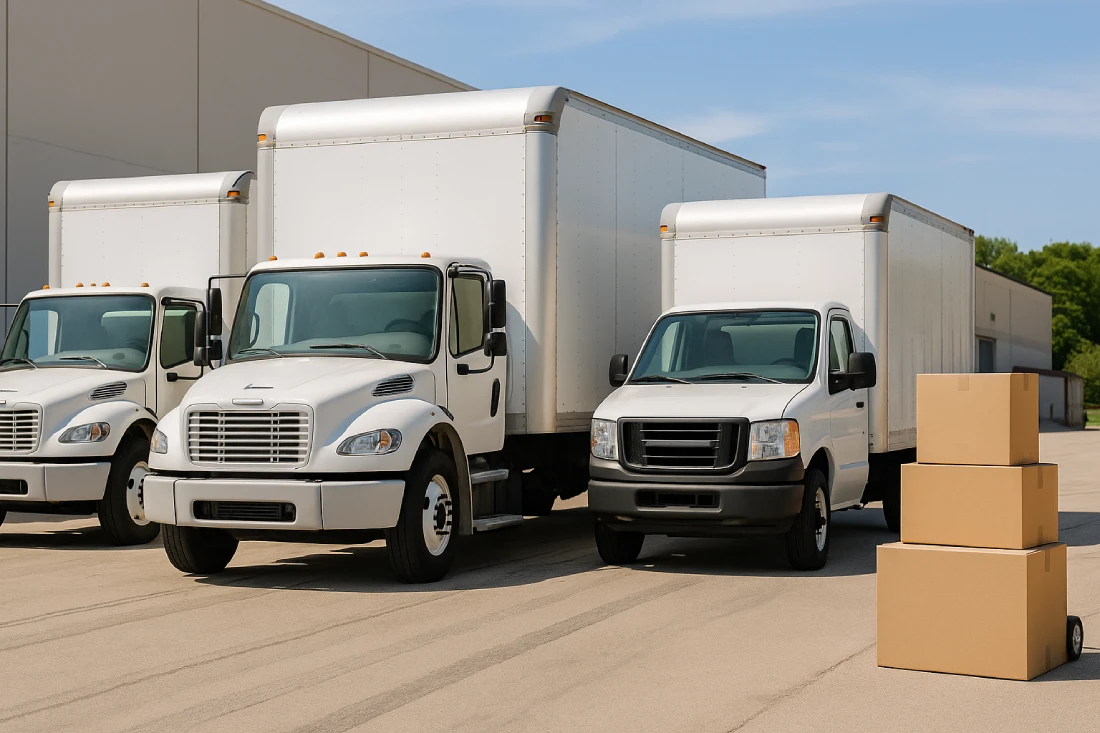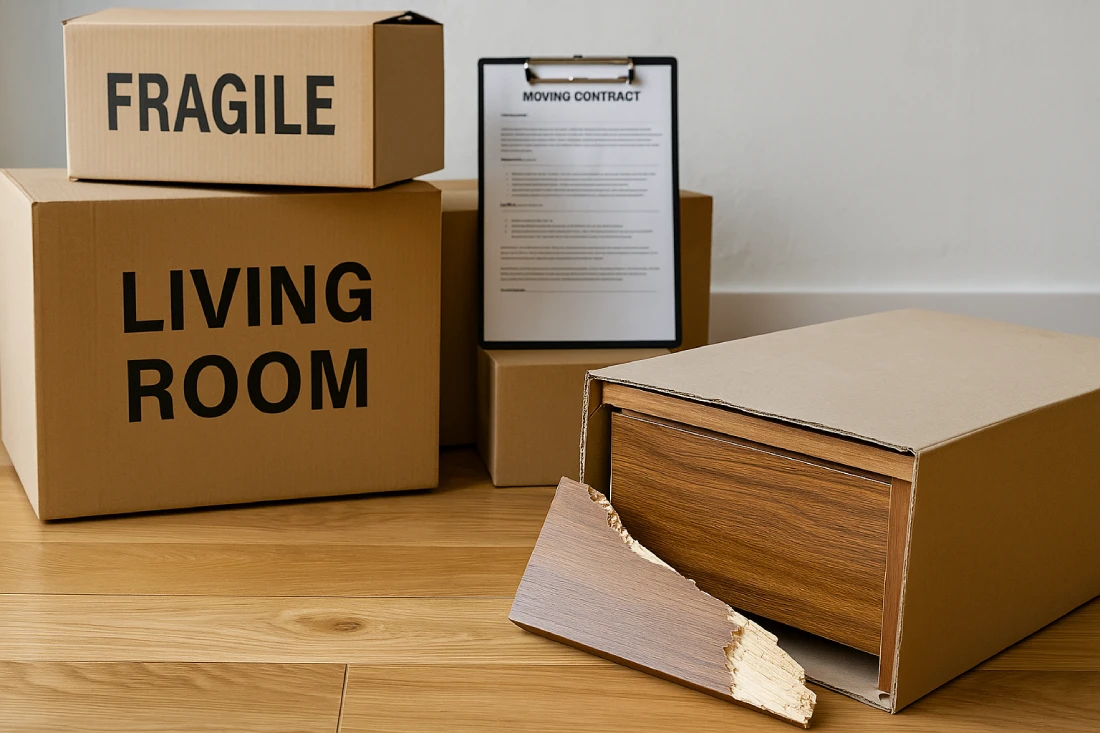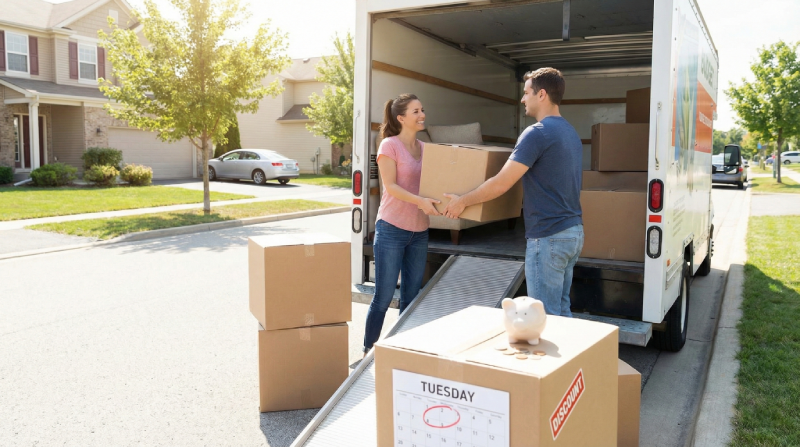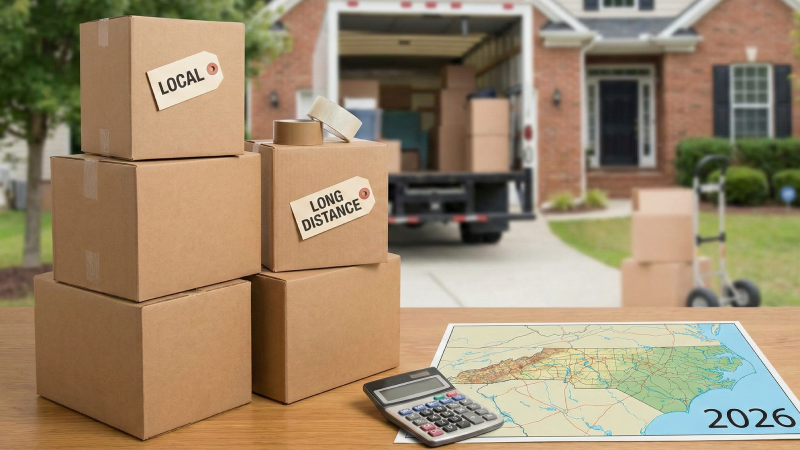Asking the right moving questions is key to protecting yourself from scams, hidden fees, and damaged belongings. Doing so strategically will help you evaluate and vet potential moving companies, understand true costs, and verify credentials before signing contracts.
This guide addresses the most important questions to ask moving companies regarding licensing, pricing, insurance, and logistics. Learn the personal and financial considerations to evaluate before committing to a move, plus warning signs that indicate potential scams.
Key Questions to Ask Moving Companies Before Hiring
Before signing any moving contract, you need to ask the right questions to protect yourself from scams, hidden fees, and service issues. Whether you're moving locally or across state lines (a significant transition that requires careful planning), the following questions are organized by category to help you thoroughly vet any moving company you're considering.
Licensing and Insurance Verification
Start by confirming the mover's credentials and legal compliance. These basic questions separate legitimate professionals from potential fraudsters:
- Are you licensed and insured for interstate moves? For moves crossing state lines, companies must have USDOT and FMCSA registration numbers. Ask for these numbers and verify them on the FMCSA website.
- Can you provide proof of current insurance coverage? Legitimate movers carry liability insurance and workers' compensation. Request documentation before making your decision.
- Are you a broker, a carrier, or both? Brokers arrange moves but don't actually transport your items. If you're working with a broker, find out which carrier will handle your belongings and research that company separately.
- What is your USDOT number and how can I verify it? Every legitimate interstate mover must have this number displayed on their website and marketing materials.
Moving Company Pricing and Cost Structure
Understanding exactly how you'll be charged is critical to avoiding surprise costs on moving day. Ask these detailed pricing questions to get a complete picture of your financial commitment. Knowing the various options can help you estimate how much does a moving company cost.
- Will you provide a binding or non-binding written estimate? Binding estimates guarantee a price, while non-binding estimates can increase based on actual weight or time. Not-to-exceed estimates cap the maximum charge.
- How is your pricing calculated for my specific move? Local moves typically charge hourly rates, while long-distance moves usually charge by weight and distance. Make sure you understand which applies to your situation.
- What services are included in the base price? Clarify whether loading, unloading, basic liability coverage, and transportation are included or cost extra.
- What hidden fees or surcharges might apply to my move? Ask specifically about charges for stairs, long carries (distance from the truck to your door), fuel surcharges, shuttle fees (if a large truck can't access your property), and storage fees.
- Do you offer in-home or virtual estimates? Reputable companies provide detailed estimates after seeing what needs to be moved. Be wary of companies that quote prices over the phone without assessing your belongings.
Insurance and Liability Protection Options
Your belongings represent significant financial and sentimental value. Understanding coverage options before your move helps you make informed decisions about protecting your possessions.Consider these important insurance questions:
- What is the default liability coverage included? By law, movers must offer basic coverage, typically $0.60 per pound per item. This means a 50-pound TV that's damaged would only net you $30, far less than replacement cost.
- What are the costs and terms for Full Value Protection? This upgraded coverage requires the mover to repair, replace, or provide cash settlement for damaged items. It costs more but offers real protection.
- Does my homeowner's or renter's insurance cover items in transit? Check your existing policies before paying for additional coverage. You may already have some protection.
- What is the process and timeline for filing a claim? Understand the timeline, documentation requirements, and how disputes are resolved before problems occur.
Moving Company Experience and Reputation
A company's track record reveals what you can realistically expect from their service. Use these questions to evaluate their credibility and customer satisfaction history:
- How long have you been in business under this name? Established companies with years of experience are generally more reliable than new operations.
- Can you provide recent customer references I can contact? Ask for contact information for customers who moved within the last few months.
- Where can I read verified online reviews of your service? Check Google, Yelp, the Better Business Bureau, and moving-specific sites. Look for patterns in complaints, not just overall ratings.
- What is your complaint history with the BBB and FMCSA? A few complaints aren't necessarily dealbreakers, but pay attention to how they were resolved and whether patterns emerge.
Moving Crew Qualifications and Process
The individuals who physically handle your belongings are just as important as the company you hire. These questions help you understand who will be in your home and how they operate. Weighing these factors is essential when deciding on moving yourself vs. hiring movers.
- Are your movers direct employees or subcontractors? Employee movers are typically better trained and more accountable than subcontractors.
- Do you conduct background checks and drug testing on your crew? You're letting strangers into your home. Make sure the company vets their workers.
- How experienced are your crews with fragile or specialty items? If you have pianos, antiques, artwork, or other valuable items, make sure the crew has specific experience handling them.
- Will my items stay on the same truck throughout the move? For long-distance moves, find out if your belongings will be transferred to other vehicles, which increases the risk of damage or loss.
- Who is my main point of contact during the move? Get a name and direct number for someone who can answer questions or resolve issues as they come up.
Logistics and Scheduling for Your Move
Timing issues can derail even the best-planned move. Ask these logistics questions to set realistic expectations and plan for contingencies, keeping in mind how long it takes to move efficiently.
- What is the pickup and delivery window for my move? Long-distance moves rarely offer exact dates. Understand the window and what happens if delivery falls outside it.
- Are dates guaranteed, or is there a delivery window? If you need guaranteed dates, expect to pay more for that service level.
- What happens if there's a delay in pickup or delivery? Weather, mechanical issues, and other factors can cause delays. Know your options and any compensation you might receive.
- What items are prohibited or restricted in your trucks? Hazardous materials, perishables, plants, and pets typically can't go in the moving truck. Plan accordingly.
- What forms of payment do you accept, and when is payment due? Legitimate companies accept various payment methods. Be suspicious of companies that only accept cash or require large upfront deposits.
Questions to Ask Yourself Before Moving
Before you even contact moving companies, take time to assess your readiness for this major life change. Answering these personal questions can help you avoid costly mistakes and make sure you're making the right decision for your situation.
Personal Readiness for Your Move
Moving involves more than just packing boxes. It requires emotional preparation and a clear understanding of your motivations. Consider these basic questions about your readiness. Special considerations apply if you are a senior or if you are relocating with kids. These questions are also vital if you are moving out for the first time.
- Why am I moving, and is this the right time? Moving for positive reasons like career advancement, family needs, or improved quality of life is different from moving to escape problems that might follow you to your new location.
- Am I emotionally prepared for this transition? Relocating means leaving behind familiar places, established routines, and your current social circle. Assess whether you're mentally ready for the adjustment period ahead.
- What support system will I have in my new location? Think about whether you have friends, family, professional networks, or community connections to help you settle into your new area.
- How will this move impact my daily routine and lifestyle? Consider commute times, climate changes, and whether the new location aligns with your lifestyle preferences and values.
Budget and Financial Planning for Your Move
Understanding the full financial impact of your move is important for avoiding unexpected expenses and financial stress. These budget-related questions will help you plan comprehensively. Since moving costs are based on volume or weight, use a decluttering checklist before moving to reduce your load and your expenses.
- Can I afford the move and all related expenses? Beyond hiring movers, factor in security deposits, first and last month's rent, utility setup fees, new furniture needs, and the overall cost of living in your destination area.
- Have I thoroughly researched the housing market in my new location? Look into rental rates, home prices, property taxes, and neighborhood characteristics before making any commitments.
- What belongings are truly needed, and what should I sell or donate? Since moving costs are based on volume or weight, decluttering before your move reduces expenses and simplifies the unpacking process.
- Do I need temporary storage, or can I move directly into my new home? If your move-out and move-in dates don't align perfectly, include storage facility costs in your budget.
- Have I budgeted for unexpected moving expenses? Set aside a contingency fund of 10-20% of your estimated moving costs to cover surprise charges or complications.
Legal and Logistical Considerations Before Moving
Successful relocations require careful attention to administrative tasks and legal requirements. Address these practical considerations well in advance of your move date:
- What are the specific legal requirements in my new location? Research driver's license transfer deadlines, vehicle registration requirements, voter registration processes, and any state-specific regulations that apply to new residents.
- Have I arranged for mail forwarding and address updates? File a change of address with USPS at least two weeks before moving, and update your address with banks, credit cards, subscriptions, and important service providers.
- What is my employment plan for the new location? If relocating for a job, confirm start dates, remote work policies, and relocation assistance. If job hunting after the move, make sure you have adequate financial reserves to sustain yourself.
- How will this move affect my family members? Research schools, childcare options, healthcare providers, extracurricular activities, and how the transition will impact each person in your household.
- Have I reviewed lease agreements or home sale contracts carefully? Understand move-out requirements, security deposit return timelines, and any penalties for early termination of your current housing agreement.
Moving Day and Delivery Questions
Once moving day arrives and the truck pulls up to your home, new practical questions emerge that require immediate attention. Being prepared with the right information helps the loading and delivery process go smoothly. You can also find additional tips by exploring our list of best moving hacks.Here are the critical questions to address on moving day:
- What should I do to prepare my home before movers arrive? Clear pathways throughout your home, protect floors with coverings if needed, and remove any items you're transporting yourself before the moving crew begins work.
- Should I be present during both loading and unloading? Yes, your presence is important. You'll need to sign the bill of lading and inventory list, answer crew questions, and being on-site helps prevent miscommunication or missing items.
- What documentation should I keep throughout the moving process? Keep copies of all contracts, receipts, inventory lists, and the bill of lading. Take photos or videos of valuable items before they're packed as evidence of their pre-move condition.
- How do I properly conduct a walkthrough inspection? Before the truck leaves, walk through every room to make sure nothing is left behind. Upon delivery, inspect boxes and furniture for damage before signing the final paperwork.
- What should I do if I notice damage during delivery? Right away, note any damage on the delivery paperwork before signing. This documentation is needed for filing successful insurance claims later.
Red Flags and How to Avoid Moving Scams
Moving scams cost Americans millions of dollars every year, with fraudulent companies using sophisticated tactics to deceive unsuspecting consumers. Protect yourself and your belongings by recognizing these critical warning signs.
Common Warning Signs of Moving Scams
Legitimate moving companies follow industry standards and best practices. Watch for these red flags that indicate you may be dealing with a fraudulent operation:
- No in-home or virtual estimate offered (Reputable movers need to assess what you're moving to provide accurate quotes. Companies that quote prices over the phone without seeing your belongings are likely unreliable.)
- Large upfront deposit required (Most legitimate movers don't require more than a small deposit, typically under 20%, if they require one at all. Demands for 50% or more upfront are major red flags.)
- Vague or missing paperwork (Professional moving companies provide detailed written estimates, contracts with clear terms, and proper licensing information. Avoid companies that operate without proper documentation.)
- Unclear business name or no physical address (Scammers frequently use generic names and provide only P.O. boxes or phone numbers. Legitimate companies have verifiable physical locations and established business identities.)
- Very low quotes compared to competitors (If one company's estimate is significantly lower than others, it's likely a lowball quote that will increase dramatically on moving day through hostage tactics.)
- Rental truck instead of company-branded vehicle (Legitimate moving companies use clearly marked trucks with their company name and USDOT number displayed. Rental trucks suggest an unprofessional or fraudulent operation.)
- Cash-only payment demands (Requiring cash-only payments makes it impossible to dispute charges or trace transactions. Reputable companies accept checks, credit cards, and other traceable payment methods.)
How to Verify a Moving Company's Legitimacy
Before hiring any moving company, take these verification steps to confirm they're a legitimate, licensed business that will protect your belongings:
- Check USDOT and MC numbers on the FMCSA website (Every interstate mover must have these numbers. Verify them at fmcsa.dot.gov to confirm licensing status and review complaint history.)
- Verify the company has a physical address and local phone number (Use Google Maps to confirm the business location exists and isn't just a virtual office or residential address.)
- Review Better Business Bureau ratings and complaint history (Check BBB.org for ratings, customer reviews, and how the company responds to complaints. Look for patterns rather than isolated incidents.)
- Search for the company name plus "scam" or "complaint" online (This simple search often reveals warning signs and negative experiences from previous customers across multiple review platforms.)
- Confirm they have proper insurance and licensing for your type of move (Ask to see current certificates of insurance and verify they hold the appropriate licenses for local or interstate moves.)
- Trust your instincts. If something feels off, it probably is (High-pressure sales tactics, reluctance to answer questions, or evasive responses are all signs you should walk away and find a different company.)
Protecting Yourself: Your Moving Questions Checklist
Use this checklist when interviewing moving companies:
- Verify USDOT and FMCSA numbers for interstate moves.
- Confirm insurance coverage and liability options.
- Get written estimates from at least three companies.
- Understand all potential fees and surcharges.
- Check reviews, references, and complaint history.
- Clarify whether the company is a broker or carrier.
- Ask about crew experience and vetting processes.
- Understand pickup and delivery windows.
- Review payment terms and methods accepted.
- Document everything and keep copies of all paperwork.
Moving Should Be Transparent
With the right moving questions, you can avoid scams, surprise costs, and moving day disasters. Be skeptical of companies that overpromise. If it sounds too good to be true, it probably is. Remember, you don't have to hand over control of your entire move to a full-service company. Hiring movers for just loading and unloading can save you significant costs while letting you maintain control over your belongings and timeline, avoiding many common moving headaches along the way.
Frequently Asked Questions About Moving
Do I need to tip movers?
Tipping is customary for good service. Plan for $20-$30 per mover for local moves or 5-10% of the total cost for long-distance moves.
How far in advance should I book movers?
Book 2-4 weeks ahead for local moves and 6-8 weeks for long-distance moves. During summer peak season, book even earlier.
What if I need to reschedule?
Most companies allow rescheduling with enough notice, but you may lose your deposit if you cancel close to the moving date.
Can movers work evenings or weekends?
Many companies offer evening and weekend moves at higher rates. Ask about scheduling options during your consultation.
Are there different considerations for local vs. long-distance moves?
Yes. Local moves charge by the hour with flexible scheduling, while long-distance moves charge by weight and distance, require different licensing, and have delivery windows instead of exact dates.



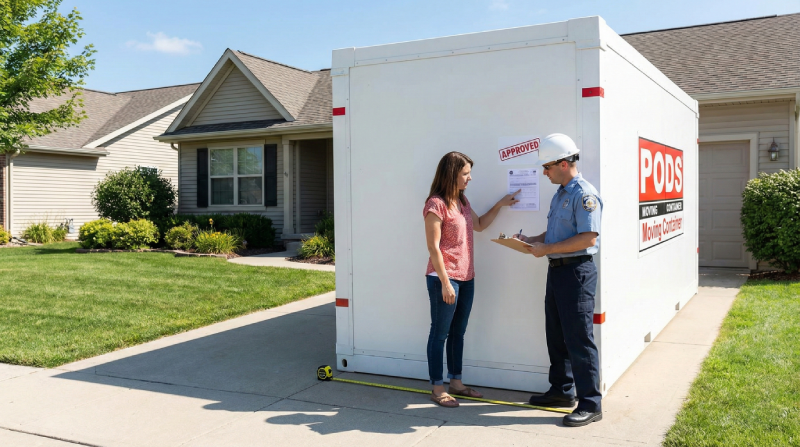






















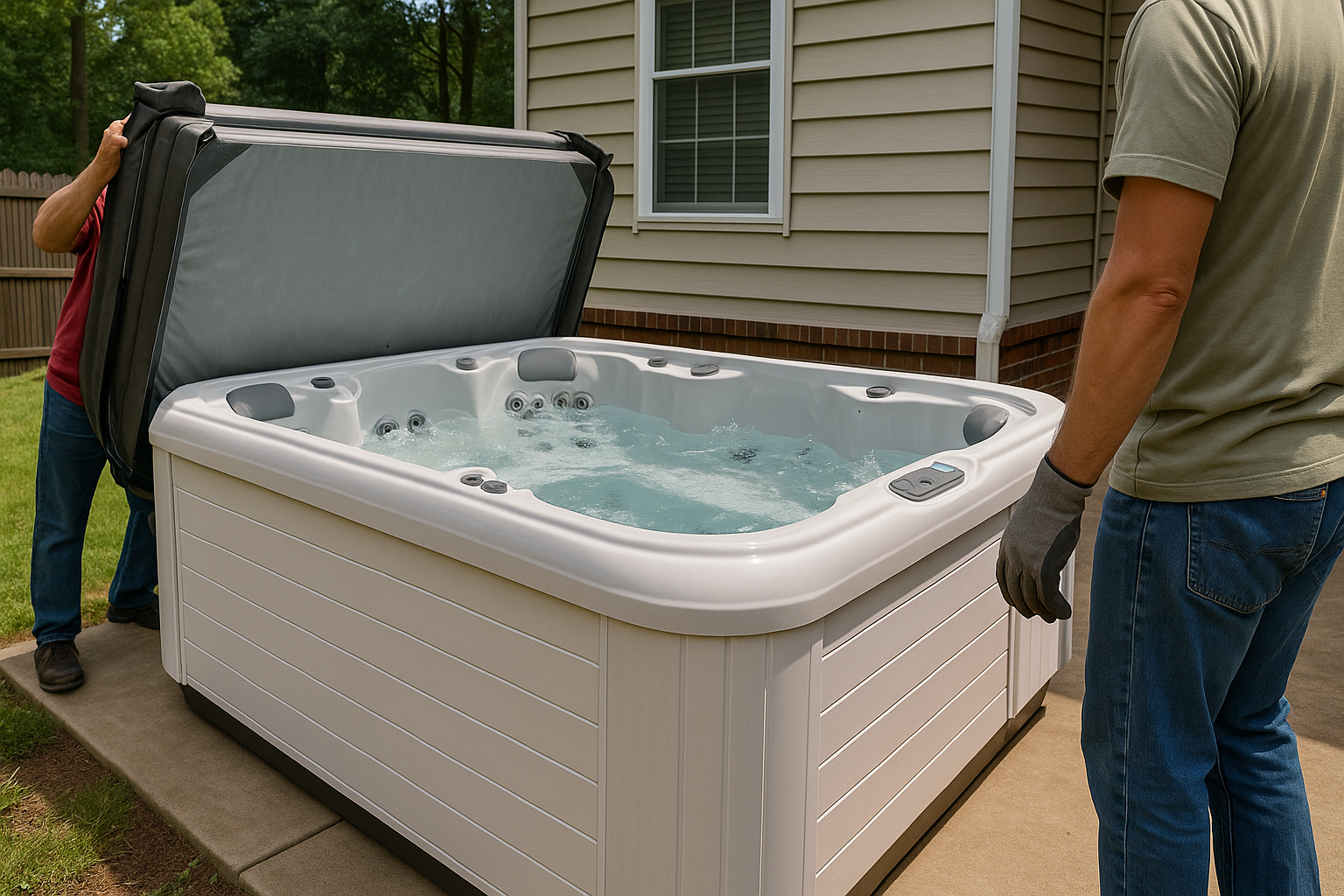

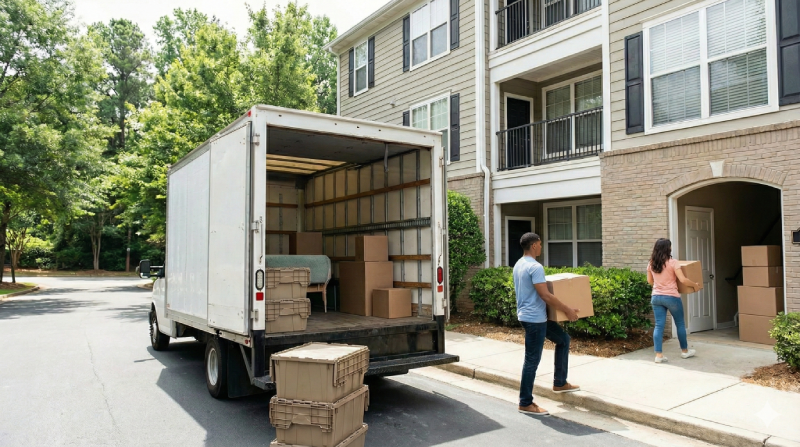
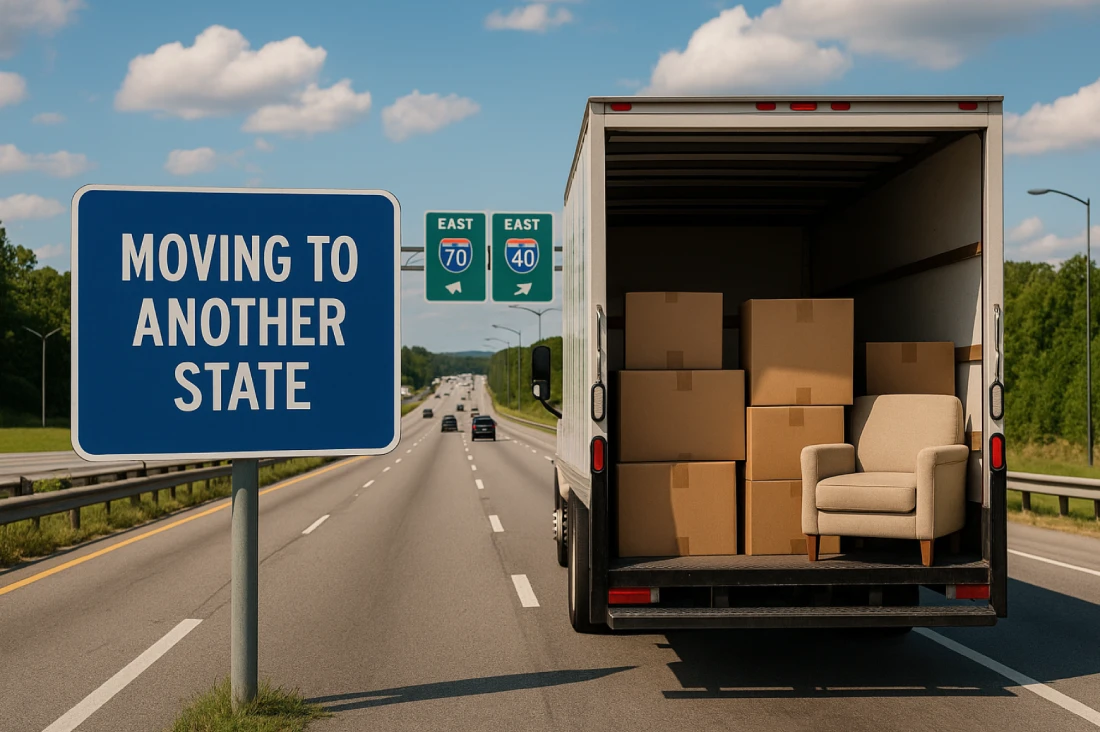




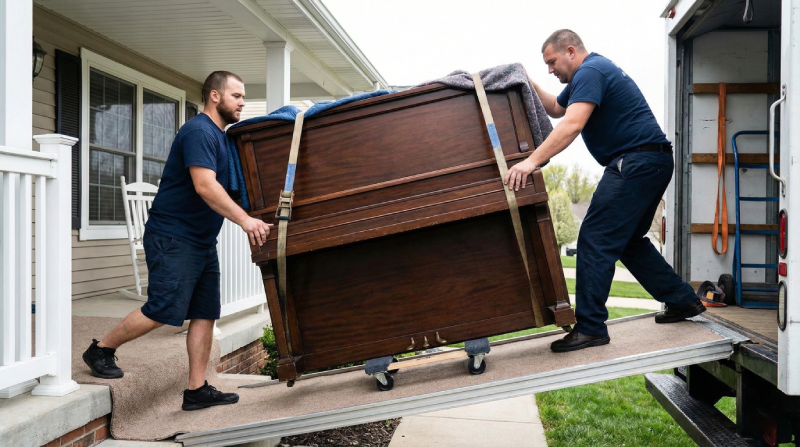
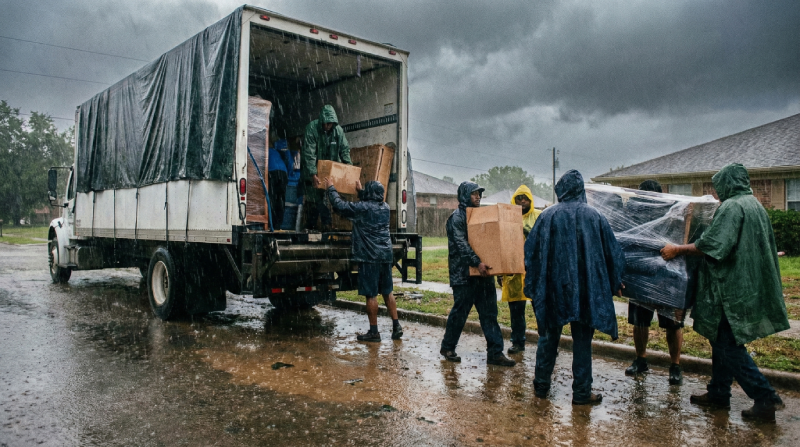
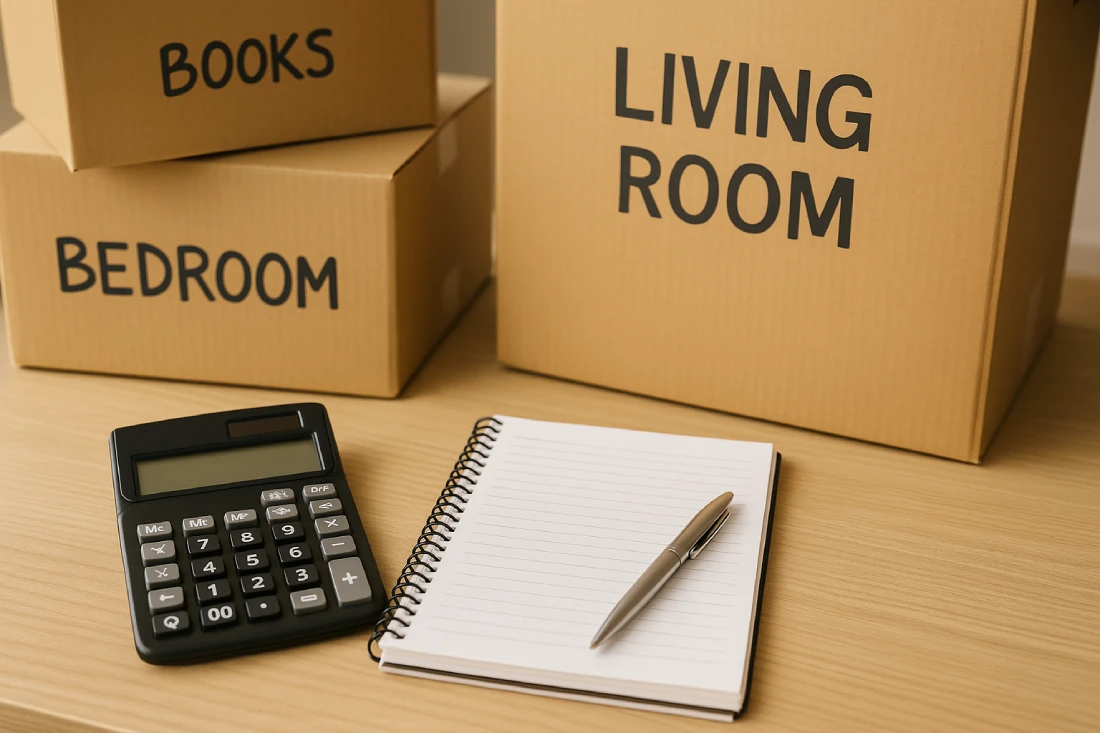

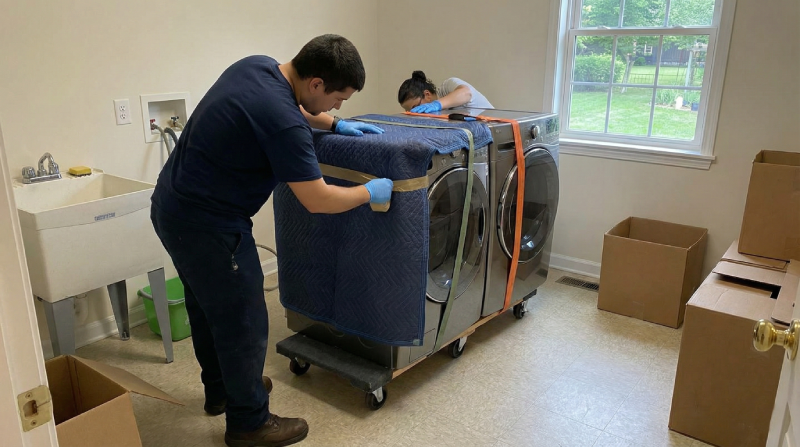

.webp)












